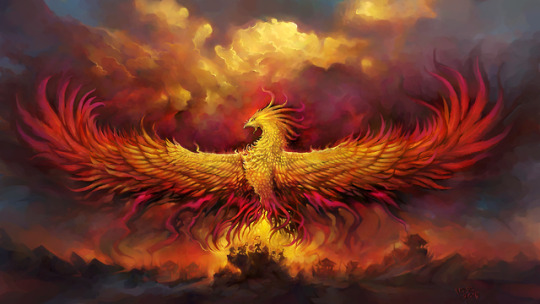The revolution has a positive impact on the natural sciences, and especially on the humanities sciences, for the same reasons that the positive effects of war and other disasters have. Typical examples are the Revolution in England, led by Cromwell, the French Revolution and the Revolution in Russia. The revolutionary periods of Greece, Rome and other countries provide us with a number of illustrations that support my idea.
The influence of the Revolution was colossal. Since ancient times, the Revolution has impressed and fascinated social thinkers.
- The revolution was one of the central themes of the most ancient Confucian texts in China - "Shu Jing" and "Li Ji" - as, indeed, texts written by Taoists ("Classics of Purity" and "Wang-chi's Writings"), not to mention on the work of Mencius and other social thinkers.
- The revolution as a phenomenon plays a special role in the ancient Hindu texts - the Code of Laws, Narada, Brihaspati, the Laws of Manu and such economic treaties as Nitishastra and Arthashastra.
- The revolution is one of the main themes of Plato's "State" and "Law" and some of his dialogues, as well as Aristotel's "Politics", the historical works of Herodotus and Thucydides, the main works of Cicero.
- The revolution as the main theme prevails and in the social works of medieval thinkers - opponents of tyranny - from Alquin, to Thomas Aquinas and Suarez. Ibn Khaldun, Machiavelli, Hobbes, Boden, Vico, Locke, Montesquieu, Rousseau, Karl Marx, Herbert Spencer, Auguste Comte, Hegel, Nietzsche, J. de Maistre, de Bonald, Galler and other major thinkers of our civilization paid particular attention to the Revolution . On the basis of their studies of the phenomenon of the Revolution, they made generalizations and conclusions about the organization of the entire socio-cultural life of society, including its structural and dynamic aspects
The stimulating role of the Revolutions (especially after their completion) is manifested, moreover, in the refutations of various obsolete theories that have not stood the test of time, and in the emergence of new, more fruitful concepts. Revolution, as, indeed, wars, like a broomstick, sweep out all debris and dirt (ie obsolete and unsuitable theories) from the society and fill the fresh air with a musty atmosphere of social thought.
The influence of the Revolution was colossal. Since ancient times, the Revolution has impressed and fascinated social thinkers.
- The revolution was one of the central themes of the most ancient Confucian texts in China - "Shu Jing" and "Li Ji" - as, indeed, texts written by Taoists ("Classics of Purity" and "Wang-chi's Writings"), not to mention on the work of Mencius and other social thinkers.
- The revolution as a phenomenon plays a special role in the ancient Hindu texts - the Code of Laws, Narada, Brihaspati, the Laws of Manu and such economic treaties as Nitishastra and Arthashastra.
- The revolution is one of the main themes of Plato's "State" and "Law" and some of his dialogues, as well as Aristotel's "Politics", the historical works of Herodotus and Thucydides, the main works of Cicero.
- The revolution as the main theme prevails and in the social works of medieval thinkers - opponents of tyranny - from Alquin, to Thomas Aquinas and Suarez. Ibn Khaldun, Machiavelli, Hobbes, Boden, Vico, Locke, Montesquieu, Rousseau, Karl Marx, Herbert Spencer, Auguste Comte, Hegel, Nietzsche, J. de Maistre, de Bonald, Galler and other major thinkers of our civilization paid particular attention to the Revolution . On the basis of their studies of the phenomenon of the Revolution, they made generalizations and conclusions about the organization of the entire socio-cultural life of society, including its structural and dynamic aspects
The stimulating role of the Revolutions (especially after their completion) is manifested, moreover, in the refutations of various obsolete theories that have not stood the test of time, and in the emergence of new, more fruitful concepts. Revolution, as, indeed, wars, like a broomstick, sweep out all debris and dirt (ie obsolete and unsuitable theories) from the society and fill the fresh air with a musty atmosphere of social thought.



Комментариев нет:
Отправить комментарий